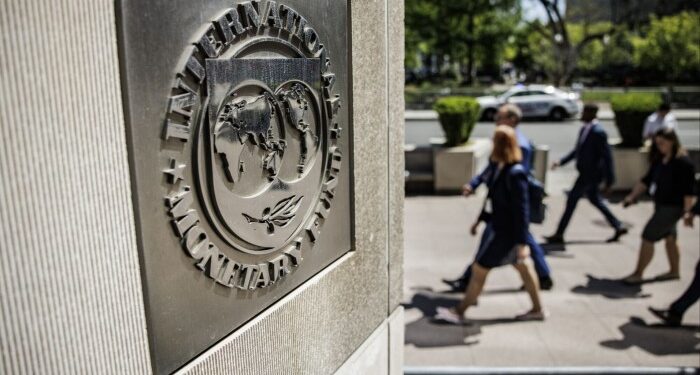Unlock the Editor’s Digest totally free
Roula Khalaf, Editor of the FT, selects her favorite tales on this weekly e-newsletter.
The current development of personal markets has been a phenomenon. Certainly, personal funds, which embody enterprise capital, personal fairness, personal debt, infrastructure, commodities and actual property, now dominate monetary exercise. Based on consultants McKinsey, personal markets’ belongings beneath administration reached $13.1tn in mid-2023 and have grown at shut to twenty per cent a 12 months since 2018.
For a few years personal markets have raised extra in fairness than public markets, the place shrinkage on account of share buybacks and takeover exercise has not been made good by a dwindling quantity of recent points. The vibrancy of personal markets signifies that firms can keep personal indefinitely, with no worries about getting access to capital.
One end result is a major improve within the proportion of the fairness market and the economic system that’s non-transparent to traders, policymakers and the general public. Notice that disclosure necessities are largely a matter of contract relatively than regulation.
A lot of this development has taken place towards the background of ultra-low rates of interest because the 2007-08 monetary disaster. McKinsey factors out that roughly two-thirds of the whole return for buyout offers entered in 2010 or later and exited in 2021 or earlier than might be attributed to broader strikes in market valuation multiples and leverage, relatively than improved working effectivity.
Right this moment these windfall positive factors are not accessible. Borrowing prices have risen because of tighter financial coverage, and personal fairness managers have been having problem promoting portfolio firms in a much less buoyant market atmosphere. But institutional traders have an ever-growing urge for food for illiquid different investments. And large asset managers are looking for to draw wealthy retail traders into the world.
With public fairness near all-time highs, personal fairness is seen as providing higher publicity to innovation inside an possession construction that ensures better oversight and accountability than within the quoted sector. In the meantime, half of funds surveyed by the Official Financial and Monetary Establishments Discussion board, a UK think-tank, stated they anticipated to extend their publicity to personal credit score over the subsequent 12 months — up from a few quarter final 12 months.
On the similar time politicians, most notably within the UK, are including impetus to this headlong rush, with a view to encouraging pension funds to spend money on riskier belongings, together with infrastructure. Throughout Europe, regulators are enjoyable liquidity guidelines and worth caps in outlined contribution pension plans.
Whether or not traders will reap a considerable illiquidity premium in these heady markets is moot. A joint report by asset supervisor Amundi and Create Analysis highlights the excessive charges and prices in personal markets. It additionally outlines the opacity of the funding course of and efficiency analysis, excessive friction prices brought on by untimely exit from portfolio firms, excessive dispersion in final funding returns and an all-time excessive degree of dry powder — sums allotted however not invested, ready for alternatives to come up. The report warns that the large inflows into different belongings might dilute returns.
There are wider financial questions concerning the burgeoning of personal markets. As Allison Herren Lee, a former commissioner of the US Securities and Trade Fee, has pointed out, personal markets rely considerably on the power to free trip on the transparency of knowledge and costs in public markets. And as public markets proceed to shrink, so does the worth of that subsidy. The opacity of personal markets might additionally result in a misallocation of capital, in keeping with Herren Lee.
Neither is the personal fairness mannequin excellent for some sorts of infrastructure funding, because the expertise of the British water trade demonstrates. Lenore Palladino and Harrison Karlewicz of the College of Massachusetts argue that asset managers are the worst sort of house owners for an inherently long-term good or service. It is because they don’t have any incentive to sacrifice within the brief time period for long-term improvements and even upkeep.
A lot of the dynamic behind the shift to personal markets is regulatory. Harder capital adequacy necessities on banks after the monetary disaster drove lending into extra calmly regulated non-bank monetary establishments. This was no unhealthy factor within the sense that there have been useful new sources of credit score for small- and medium-sized firms. However the associated dangers are more durable to trace.
Based on Palladino and Karlewicz, personal credit score funds pose a novel set of potential systemic dangers to the broader monetary system due to their interrelationship with the regulated banking sector, the opacity of the phrases of loans, the illiquid nature of the loans and potential maturity mismatches with the wants of restricted companions (traders) to withdraw funds.
For its half, the IMF has argued that the fast development of personal credit score, coupled with rising competitors from banks on giant offers and strain to deploy capital, might result in a deterioration in pricing and non-pricing phrases, together with decrease underwriting requirements and weakened covenants, elevating the chance of credit score losses sooner or later. No prizes for guessing the place the subsequent monetary disaster will emerge from.










